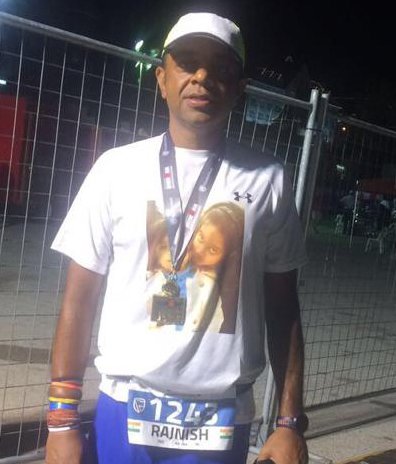Preparing for your MARATHON
Preparing For Your MARATHON
Rajnish Goswami
You are super excited. It Is your first marathon. All this while you have prepared yourself doing a little more than the day before and also getting healthier. For many, this run, a marathon is a personal challenge. Some might want to test their limits to prove they can go the distance . Some might have been talked into it by friends. Some might want to do it to lose weight.
Well, whatever be the reason hold onto it.
Here are a few things you could keep in mind while getting marathon ready.
Get started:—
Know your limits: Consult your doctor before starting any training. The 42.2 km run distance can put you in risk for injury compared to your regular run.
Start early : It is recommended that marathon runners should have been running constantly for atleast a year before starting marathon running.
One of the main reasons causing injury is increasing distances too soon. You need to get used to a particular distance for some while before increasing.Give yourself plenty of time to accomplish your goal.You should set atleast 4-6 months to train for a marathon.
Start small : Running a few shorter races —5km, 10 km or a half marathon is an excellent way to prepare for the first big one .
1) Make a plan : Keeping your current abilities in mind, make a schedule of practice runs. If you’re considering running a full marathon you should be already running 45 minutes without stopping. Follow some training schedule .
2)Plan long runs :Schedule running 1 long run a week .When you start the long run should be 15-18 km . Every week try to increase this distance by about 10% . By week 16 , you should be able to run around 35 km.
3)Alternate long runs with short runs. Short runs improve cardiovascular functioning. Short runs are good for the treadmill so you can control your pace . You shouldn’t walk or be able to talk during the run.
4)Add strength training and core training : Strength training can have huge benefits for runners. Strong leg muscles can deliver more power when running while strengthening ligaments can make you less prone to injury.
A stronger core helps you maintain a stable upper body minimising lateral shifting.
Developing strength in your arms will improve your arm drive so you can inject more power into your stride .
Add some
a) push-ups
b) dumb bell rows
c) tricep -dips
d) step-ups
e) squats
f) planks
g) Lunges and walking lunges etc.
5)Train seriously : Treat your long runs as pratice race runs for the real marathon.
If you have to miss a day or two of training, reschedule your training so that you miss out short runs.When you do intense training runs, remember to carry a litre of water and some gels or electrolytes. To avoid overdoing , you can walk a part of the long run.
The longest pre race run should be about 2 weeks before the event to allow your body plenty of recovery
6)Rest and recovery :Rest days mean no running. Your muscles recover from training workouts and help prevent mental burnout.The best protection against injury during training is rest. You could do some walking or swimming during your rest days anything which has low impact.
Race day tips: Do not try anything new on race day. Your long training runs are when you should fine tune your run gear and fueling strategies.
During the race, start slowly, there will be plenty of kms over which to pick up the pace if you are feeling good.
Do not try drinking from a cup while running. Either practice drinking while running or pull over for a few seconds to drink.
Toilet lines are the longest at the first few aid stations. It may save you time if you can wait a few kms .
If you have a friend coming to cheer you, plan ahead at which spots you will meet. This can be a huge boost.
Enjoy the energy of the spectators and Run.

Rajnish Goswami, obese till 2015, successfully completed multiple Marathons and Ironman half distance and full distance races. He is a fitness enthusiast and an avid reader of sports science




